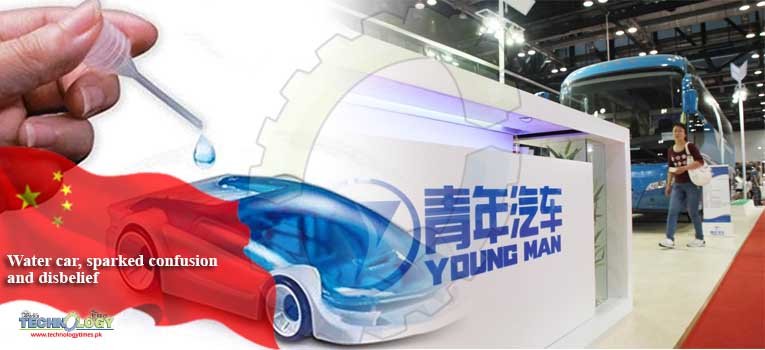Reports that a company in Nanyang, Henan province, had produced a car that can run on water sparked confusion and disbelief, with one engineering professor declaring the feat impossible.
 The producer of the vehicle, China Youngman Automobile Group Co, was quoted as saying the engine can convert water into hydrogen, which in turn generates electricity to drive the vehicle, but it didn’t reveal the exact process involved.
The producer of the vehicle, China Youngman Automobile Group Co, was quoted as saying the engine can convert water into hydrogen, which in turn generates electricity to drive the vehicle, but it didn’t reveal the exact process involved.
“It is not a theory,” Pang Qingnian, the company’s chairman, told Xinhua News Agency last week. “We actually produced the car and it is running. We want to launch it to the market next year. This is our goal.”
The vehicle was the first prototype to apply the hydrogen generation technology and needs further improvement before being put into mass production, according to the administrative committee of Nanyang’s high-tech zone, where China Youngman is located.
After taking a test ride, the city’s Party chief, Zhang Wenshen, called it “very good” in a news report on Thursday.
The administrative committee said the project, which was approved by the Ministry of Science and Technology in 2010, produced technology that has been patented and is supported by Hubei University of Technology.
But media reports about the “water-fueled” vehicle soon sparked skepticism online, as scientists and industry experts said that simply turning water into hydrogen, even with the help of catalysts, contradicted the law of conservation of energy in physics and chemistry.
“Converting pure water into hydrogen as fuel is as impossible as turning water into oil,” Sun Baigang, a professor at Beijing Institute of Technology’s School of Mechanical Engineering, told The Beijing News.
He said making hydrogen out of water can only be achieved by adding other chemicals, including methanol, sodium borohydride, magnesium or aluminum powder. These are all existing technologies and are not considered new in the industry, he said.
Staff members at the local industry and information technology bureau told The Beijing News on Friday that the initial report released inaccurate information that led to misunderstanding. The project was still under development and had not been put into production or approved by industrial authorities.
According to the committee, the project has been under development by a team from Hubei University of Technology since 2006. The team started cooperating with the company two years ago to commercialize their scientific results.
Dong Shijie, the project leader from the university, said the technology was misinterpreted and is not the same thing as a “water-fueled engine”.
“Water is just a reactant. The core technology lies in the equipment, materials that produce hydrogen and the control systems. It is purely a misunderstanding that the vehicle only runs on water,” he said.
Liu Zhongmin, director of the Dalian Institute of Chemical Physics, a subsidiary of Chinese Academy of Sciences, said, “The media report only emphasized the role of water but failed to give a full explanation. It is incomplete and misleading to simply introduce the concept of water.”
Liu said if the technological process applied in the vehicle used aluminum, which reacts with water to make hydrogen, as explained by the committee, before generating power, then the principle seems more reasonable.
He said the science behind hydrogen-fueled vehicles has already been done, but the actual cost and how to ensure safe use of hydrogen-considering its flammable and explosive nature-remains a big challenge to the future marketing of the product.